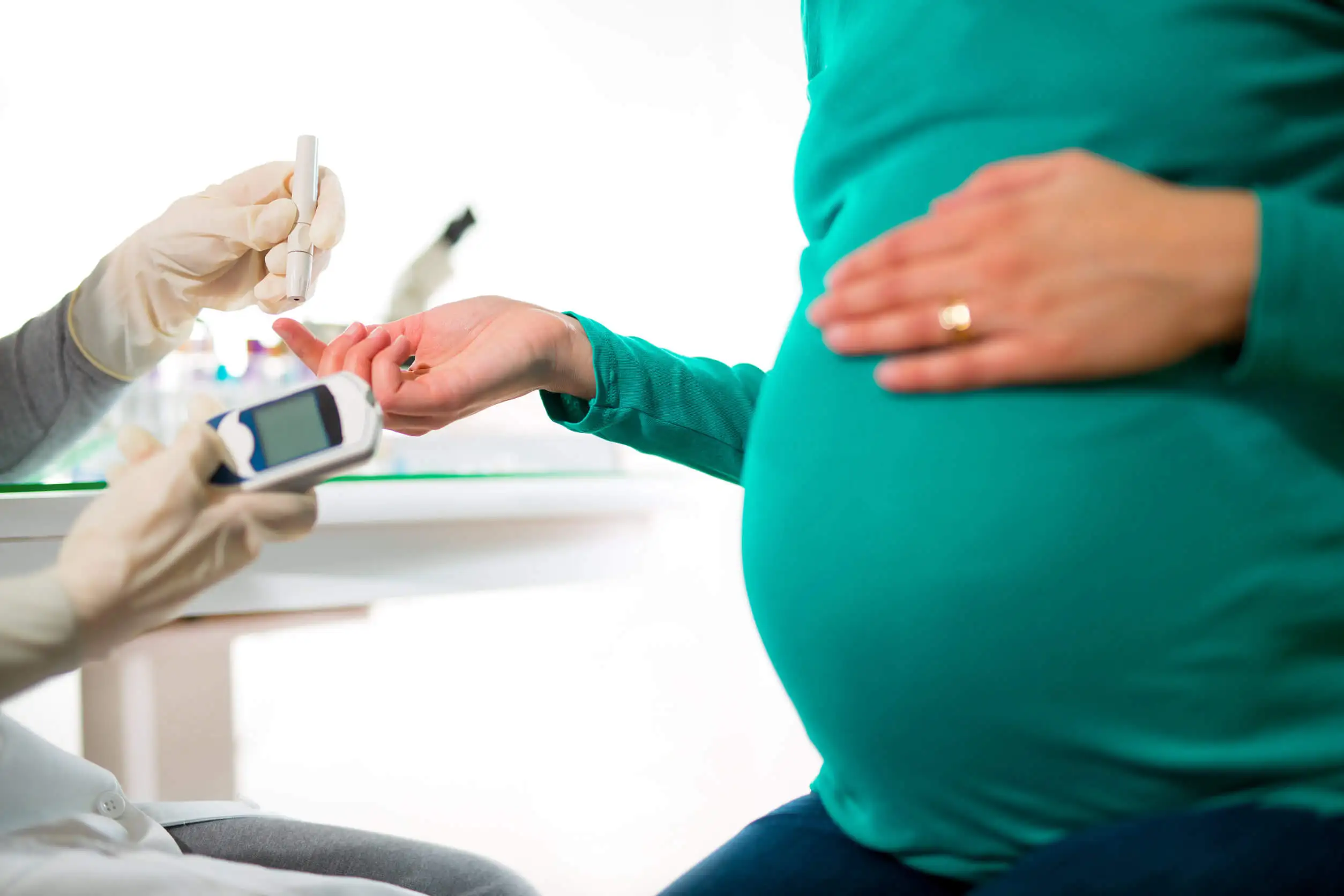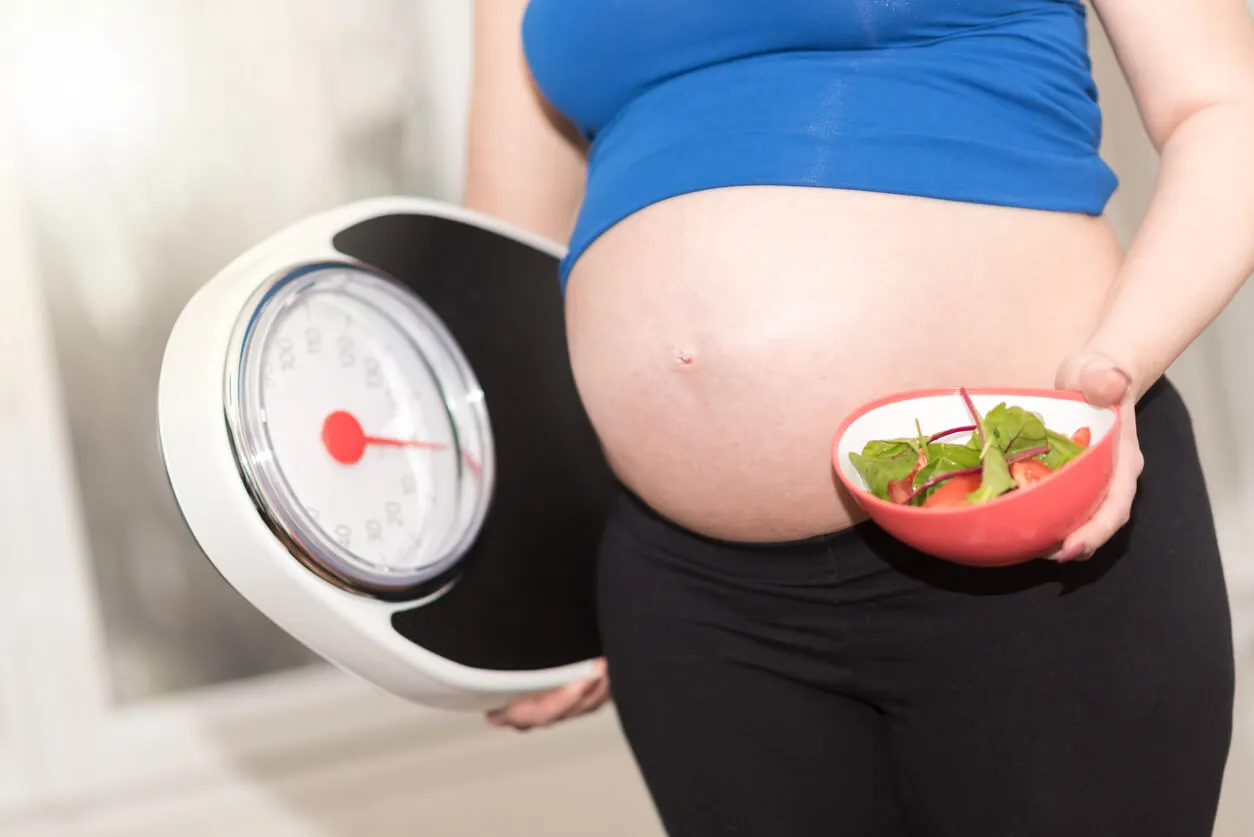Fasting During Pregnancy: Risks and Recommendations

Fasting during pregnancy is a practice that carries risks. As we know, during this stage adequate nutrition is essential in order to maintain the good health of both the mother and the baby. Therefore, depriving oneself of food is more than questionable.
Despite this, some women choose to fast during this stage, either for religious reasons or because of convictions regarding the lifestyle they should lead. Today science has found evidence that this isn’t healthy and, on the contrary, leads to complications. To learn more about it, read on.
Fasting during pregnancy
Fasting is fashionable worldwide, as its practice has been linked to some health benefits. In particular, intermittent fasting has become a trend due to its effects on weight loss and on the symptoms of metabolic syndrome.
However, it’s a strategy that should be applied by health or nutrition professionals, as it isn’t suitable for everyone. In the case of pregnancy, there isn’t enough evidence about its effects. Even so, some studies associate its practice with an increased risk of gestational diabetes and labor induction.

Read also: Risks of a High Sugar Diet During Pregnancy
Possible effects of fasting during pregnancy
A few years ago a study was conducted on the effects of fasting during pregnancy in a group of rats. It was found that animals that didn’t eat food for more than 12 hours increased the risk of having premature deliveries.
This is because food deprivation increases a substance called “corticotropin-releasing hormone”, which can stimulate labor, even if it’s premature.
Similar studies in humans are lacking, but the findings lead scientists to consider three possible effects of fasting during pregnancy. These encompass the following:
- Low birth weight. Fasting leads to temporary malnutrition that can cause permanent effects on the fetus. It isn’t only low birth weight, but an increased risk of the child developing type 2 diabetes or kidney problems.
- Cognitive impairment. Nutritional restrictions can increase levels of cortisol, the stress hormone. If this occurs, it could lead to cognitive impairment in the child.
- Other. Sometimes, abstaining from food leads to the production of ketone bodies, molecules that arise in the liver and could have negative effects on the fetus.
You might also be interested in: What Are the Consequences of Not Eating for Several Hours?
Intermittent fasting
One of the trendy practices is intermittent fasting, which is claimed to have many benefits. It consists of depriving oneself of food for a limited period of time, either every day, every other day, or once a week.
As we have already mentioned, it’s a strategy that isn’t suitable for everyone, including pregnant women. Although it is true that its practice contributes to weight loss, during pregnancy it has more risks than benefits.
Prolonged fasting
Research carried out with sheep found that, after several hours of fasting, fetal respiratory movements were reduced. When they resumed eating, the values returned to normal.
On the other hand, a study conducted with women who fast during pregnancy for Ramadan didn’t find that this practice caused serious problems for the fetus. However, another recent study came to different conclusions.
In the latter case, 41,000 children of Muslim mothers who had fasted during pregnancy for Ramadan were studied. It found an increase in infant mortality of 33% when fasting was done in the first weeks of pregnancy, 29% in the first trimester, and 22% in the third trimester.
Basic nutrition during pregnancy
A pregnant woman shouldn’t eat for two, but she should take in the nutrients necessary to support the growth and development of the new life. The ideal thing is to divide the intake into five meals a day, accompanied by an optimal water consumption. The nutrients that should be prioritized are the following:
- Folic acid
- Iron
- Calcium
- Pyridoxine
- Protein
- Zinc

Final recommendations
Fasting during pregnancy is not an option to consider – not even a short fast. As we have seen, although there are no conclusive studies on the subject, the possible negative effects are reason enough not to take the risk.
It’s important to watch your weight, but this method isn’t the best option at this stage. It’s necessary to follow the doctor’s and nutritionist’s recommendations, which include a healthy diet, physical activity and taking care of your emotions.
All cited sources were thoroughly reviewed by our team to ensure their quality, reliability, currency, and validity. The bibliography of this article was considered reliable and of academic or scientific accuracy.
- Vasim I, Majeed CN, DeBoer MD. Intermittent Fasting and Metabolic Health. Nutrients. 2022 Jan 31;14(3):631. doi: 10.3390/nu14030631. PMID: 35276989; PMCID: PMC8839325.
- Sally Ann Lederman, Pedro Rosso, Effects of Fasting During Pregnancy on Maternal and Fetal Weight and Body Composition in Well-Nourished and Undernourished Rats, The Journal of Nutrition, Volume 111, Issue 10, October 1981, Pages 1823–1832, https://doi.org/10.1093/jn/111.10.1823.
- Alkhalefah A, Dunn WB, Allwood JW, Parry KL, Houghton FD, Ashton N, Glazier JD. Maternal intermittent fasting during pregnancy induces fetal growth restriction and down-regulated placental system A amino acid transport in the rat. Clin Sci (Lond). 2021 Jun 11;135(11):1445-1466. doi: 10.1042/CS20210137. PMID: 34008846.
- McCrabb GJ , Hosking BJ Egan AR (1992) Changes in the maternal body and feto-placental growth following various lengths of feed restriction during mid-pregnancy in sheep. Australian Journal of Agricultural Research 43, 1429-1440. https://doi.org/10.1071/AR9921429.
- Mirghani HM, Hamud OA. The effect of maternal diet restriction on pregnancy outcome. Am J Perinatol. 2006 Jan;23(1):21-4. doi: 10.1055/s-2005-923435. PMID: 16450268.
- Glazier JD, Hayes DJL, Hussain S, D’Souza SW, Whitcombe J, Heazell AEP, Ashton N. The effect of Ramadan fasting during pregnancy on perinatal outcomes: a systematic review and meta-analysis. BMC Pregnancy Childbirth. 2018 Oct 25;18(1):421. doi: 10.1186/s12884-018-2048-y. PMID: 30359228; PMCID: PMC6202808.
- Álvarez, N. C. C., Befeler, J. S., Martínez, J. A. R., Rodríguez, A. B., & Restrepo, P. (2011). Estado nutricional en el embarazo y su relación con el peso del recién nacido. An Med (Mex), 56(3), 126-132.
This text is provided for informational purposes only and does not replace consultation with a professional. If in doubt, consult your specialist.








